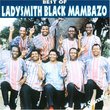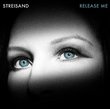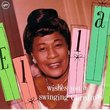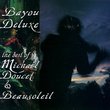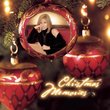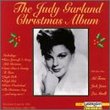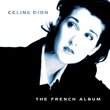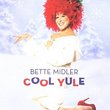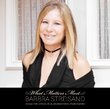| All Artists: Jessye Norman Title: Roots: My Life, My Song (2 CD) Members Wishing: 0 Total Copies: 0 Label: Sony Classics Original Release Date: 1/1/2010 Re-Release Date: 6/15/2010 Genres: Pop, Classical Styles: Vocal Pop, Opera & Classical Vocal Number of Discs: 2 SwapaCD Credits: 2 UPC: 886976426323 |
Search - Jessye Norman :: Roots: My Life, My Song (2 CD)
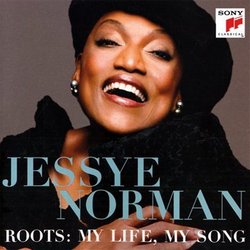 | Jessye Norman Roots: My Life, My Song (2 CD) Genres: Pop, Classical
|
Larger Image |
CD DetailsSimilarly Requested CDs
|
CD ReviewsBack in the spotlight. Finally. And her roots are showing. Alan W. Petrucelli | THE ENTERTAINMENT REPORT (ALAN W. PETRUCELLI) | 06/29/2010 (4 out of 5 stars) "Jessye Norman is one of the world's most famous sopranos. So we have one question: Why'd we have to wait so long (10 years!) for this 2-disc solo album, her most personal project to date? This musical journey reflects her exciting life--from her years as a poor music student to the most internationally successful and highly acclaimed female classical artist since Callas. Recorded live at Berlin's Philharmonie, Roots: My Life, My Song covers the history of the great black American music tradition: from the drums of Africa via spirituals and gospels to Ellington and Monk. It's also a tribute to Josephine Baker, Nina Simone, Lena Horne, Odetta and Ella Fitzgerald---those women who have inspired Jessye. Her sumptuous sound, her joy of singing and spontaneous passion, shares the spotlight here. Let's hope we don't have to wait another decade. " Jessye's "Roots" is the Best Album of 2010! Breathtaking! G P Padillo | Portland, ME United States | 07/19/2010 (5 out of 5 stars) "In her new two disc album, Jessye Norman has given us an a gift that is as sure to infuriate as many as it delights. This is as it should be. The live album (recorded before an audience at the Berlin Symphonie) is a musical journey - almost a theatre piece - of Norman's life as a proud, black African American woman of song.
It opens with a rhythmic overture of African drums serving as a sort of "call to order" which doesn't so much end as it does flow into her first number, an a capella rendition of "His eye is on the sparrow" - slowly an instrument, a drone, is heard as we move into the spiritual "I want two wings" - as the instruments progress with the singer directly, marvelously, into "I couldn't hear nobody pray" with the singer and her musicians increasing in intensity through this steady stream. The effect is as if walking down the darkest of halls or paths, lost, blindly, eyes adjusting slowly to the darkness and moving toward a single shaft of light, distant, faint, that, with each step increases both in warmth and brilliance. It is a tremendous effect. Norman uses her instrument as the best jazz or classical musicians do, with a sound that is usually immediately identifiable, but willing to do everything and anything within its means to achieve an artistic purpose, bending melodies, pitch, lightening the voice to a thin, almost childlike sound, or opening up and bathing the room in a lush warmth you never want to end. Some, particularly strictly classical audiences, will find this disturbing (indeed early reviews have called the album "painful" and "disgusting" and "shameless." Everyone of those "critics" may be right in not liking what she's done here, but are wrong . . . DEAD wrong in their failure to understand what she has done here and what she is giving us. The first song to take us "there" is Duke Ellington's "Heaven" where Norman, begins it as a jazz standard, playing with the piano, swooping up and down and coloring the notes and text with liberties. About midway through, through scatting, nonsense syllables, trilled "rs" and drum-like sound effects becomes a player in the band. The effect is terrific fun with Norman covering several octaves easily, breezily. Only in the bizarre world of music can this be followed - almost seamlessly, by a reprise of Bernstein's "Somewhere" from West Side Story. It is about as inauthentic a version to Broadway as is possible, but Norman wears it earnestly and this little version does exactly what she expected it would - have the audience hoopin' and hollerin' - as she rolls/plows/busts into "My Baby Just Cares for Me." It's almost too much to take in and I looked in vain for a place to take a breath and realized . . . I didn't even want to. Norman is unrecognizable in a number of the pieces (including the aforementioned "My baby...") but every syllable is uttered with care, precision just as every note is a wild, swinging celebration of a life's joy as she calls out as her player's names before a solo riff in great jazz lady style. While Lena Horne's "Stormy Weather" has always been my touchstone for that song, Norman takes a new approach, a more jazz-infused one, at some point almost recalling just a hint of Billy Holiday's voice. It's a slower, more sensuous take than anyone is probably used to, but I can see this version becoming "standard" . . . and Norman, with her operatic inclinations infuses the song with a weight that feels natural and bulds and builds towards the final reprise. It's thrilling. What Norman does with "Mack the Knife" is sheer brilliance, almost returning the piece to the opera house, giving the opening narrative auf Deutsch, against the small tattoo of a snare drum as she turns the bloody, violent text into a narrative of devilish delight. Each verse grows in intensity, voice and a bit of violence until the audience erupts in extended cheers as the song is wrapping up. Oh, Jessye! It's almost impossible to review this without wanting to comment on every single number (as I've done up until now). Suffice it to say, what Norman does with nearly every song is claim it as her own, turn whatever you may have known or felt about the song on its ear. Even something as innocuous as "All the pretty horses" becomes something else altogether - a haunting dreamscape with enough colors to convince the listener he has synesthesia. There's the brutality of "God's Gonna Cut You Down" with a dark rawness that gives Johnny Cash a run for his money. When she ends the song it is with a final pronouncement announcing death and it's chilling. But Norman isn't done as she admonishes her band "Take me off" and walks off singing the "Go tell . . . go tell that back biter, Good God a'mighty's gonna cut you down!" and again, the house goes absolutely wild. Norman opens the second half with "Les Chemins de L'amour" - in a throaty baritone, that under different circumstances might be deemed a bit indulgent, but here - works. There are brilliant touches that abound, such as the "La Marseillaise" morphing into "The Star Spangled Banner" which serves as the introduction to "J'ai Deux Amours" Jessye finishes her musical journey with Ellington, Bizet, Monk and more ending on a "When the Saints Go Marching In" introduced by a bluesy, twangy that gets the audience and Jessye into a fiesty mood that finishes the concert in as bawdy, loud and rip roarin' a manner that probably hasn't been heard since Judy sang at Carnegie! It is nearly beyond comprehension (but only "nearly) that this is the same woman who for years has transfixed me as Cassandre, terrified me as Judith, thrilled me as Ariadne only makes this cake all the tastier. This is as joyous a celebration of a singer as I have ever experienced and I only hope the album sells well and shows those who might not already know, what a force of nature, what an artist and remarkable human being is this Jessye Norman. Now take the show on the road, girl! p." |

 Track Listings (11) - Disc #1
Track Listings (11) - Disc #1